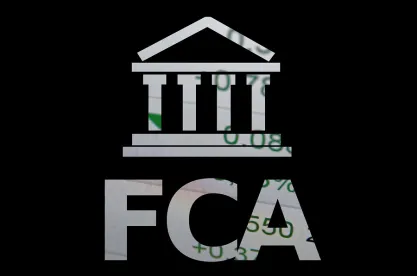As a reaction to the financial crisis of 2008/2009 and following the subsequent review of the financial services industry, UK Parliament decided to replace the discredited Approved Persons Regime (APER) in the UK, with a regime that focuses more on individual accountability in financial services firms—the Senior Managers & Certification Regime (SM&CR).
The SM&CR has been in force for firms regulated by both the UK Financial Conduct Authority (FCA) the UK Prudential Regulation Authority (PRA), such as banks, building societies, credit unions and designated investment firms since March 2016. It will be extended to cover individuals working at all firms only regulated by the FCA, from December 9, 2019.
The SM&CR aims to reduce harm to consumers and to strengthen market integrity. It intends to achieve this by creating a system enabling firms and UK regulators to hold specific individuals to account. It is intended that standards of conduct for everyone who works in financial services will be raised, and senior people in firms will be made more accountable for their conduct, actions and competence.
Types of Firms Affected
SM&CR requirements apply differently, depending on the category to which an FCA-regulated firm belongs—'core', 'enhanced' or 'limited scope'.
Most FCA-regulated firms will come under the core regime. The enhanced regime will impose additional rules to approximately 350 firms, where the FCA considers that their size, complexity and potential impact on consumers warrant greater regulatory focus. For example, firms with £50 billion or more of assets under management as a three-year rolling average, or significant IFPRU firms, would be considered enhanced-regime firms. By contrast, the limited scope regime will apply fewer of the SM&CR requirements to firms that currently have a limited application of the existing APER.
SM&CR Requirements
Senior Managers Regime
Under the SM&CR, there is a new class of controlled functions—Senior Management Functions (SMFs) in place of the existing FCA governing functions under APER. The FCA has prescribed a number of SMFs which apply to regulated firms. Such Senior Managers are the most senior people in a firm with the greatest potential to cause harm or impact upon market integrity. This will include all partners in a partnership, unless, for example, they are 'sleeping partners' or junior partners, who do not meet the legal definition of a Senior Manager.
Below is a table which maps current controlled functions to possible corresponding SMFs.
|
Current Controlled Function |
Possible Corresponding SMFs |
|
CF1 – Director |
SMF3 – Executive Director |
|
CF2 – Non-Executive Director |
SMF9 – Chair |
|
CF3 – Chief Executive |
SMF1 – Chief Executive SMF19 – Head of Third Country Branch |
|
CF4 – Partner |
SMF3 – Executive Director SMF27 – Partner |
|
CF10 – Compliance Oversight |
SMF16 – Compliance Oversight |
|
CF11 – Money Laundering Reporting Officer |
SMF17 – Money Laundering Reporting Officer |
|
CF29 – Significant Management Function |
SMF21 – EEA Branch Senior Management Function |
All such Senior Managers will have to be approved by the FCA before they commence their role. Also, the Senior Managers Regime has no territorial limitation, so it applies to anyone who performs a Senior Manager role for an FCA-regulated firm, regardless of whether they are based in or outside the UK.
All Senior Managers will need to have a Statement of Responsibility, clearly setting out their role and responsibilities. Every Senior Manager also will have a Duty of Responsibility. So if a firm breaches one of the FCA's rules, the Senior Manager responsible for that area could be held personally liable if they failed to take reasonable steps to prevent or stop the breach, which could result in a criminal prosecution against the Senior Manager.
Additionally, a firm (except for limited-scope firms and EEA branches) must give Prescribed Responsibilities to Senior Managers who are the most senior person for an issue. Prescribed Responsibilities are additional to the inherent responsibilities that are an essential part of a Senior Manager's role, to ensure that a Senior Manager is accountable for key conduct and prudential risks. Enhanced-regime firms must prepare and maintain a Responsibilities Map, including, for example, how the Prescribed Responsibilities have been allocated and how responsibilities are shared or divided between different people.
Of particular relevance to UK fund managers is a new, specific Prescribed Responsibility. The aim of this Prescribed Responsibility is to ensure that a Senior Manager, usually the chair of the board of an authorised fund manager, must take reasonable steps to ensure that the firm complies with its obligation to carry out the assessment of value, the duty to recruit independent directors, and the duty to act in the best interests of fund investors.
Certification Regime
The new Certification Regime covers specific functions that are not SMFs, but can still have a significant impact on customers, the firm and/or market integrity. The purpose of the Certification Regime is to lay the emphasis on firms, not the FCA, as being responsible for ensuring their staff meet the FCA's fit and proper requirements, because firms will need to assess and certify at least annually that such people have suitable skills and expertise to do their job. Certification must state that the individual:
- has obtained the requisite qualification(s) to do their job;
- has undergone or is undergoing training; and
- possesses the requisite level of competence.
The Certification Regime only applies to employees of firms, including contractors and secondees to a firm, but not to non-executive directors. However, the fit and proper test will apply to anyone performing an SMF or Certification Function, and will be extended to non-executive directors, even if they are not Senior Managers.
The following key examples will be Certification Functions under the SM&CR:
| Certification Function |
Overview |
|
Significant Management Function (current Controlled Function 29) |
This will capture individuals with significant responsibility for a business unit, including HR or IT. |
|
Proprietary traders |
The Certification Regime will cover all proprietary traders. |
|
The client dealing function |
This function will expand on the current Controlled Function 30 to any person dealing in or arranging investments with clients, e.g., investment managers, financial advisers, people involved in corporate finance. |
|
Algorithmic trading |
This includes people with responsibility for approving the deployment of a trading algorithm. |
The Certification Regime only applies to relevant individuals based in the UK or who deal with a UK client (except for material risk takers—the Certification Regime applies to them wherever they are located).





 />i
/>i
